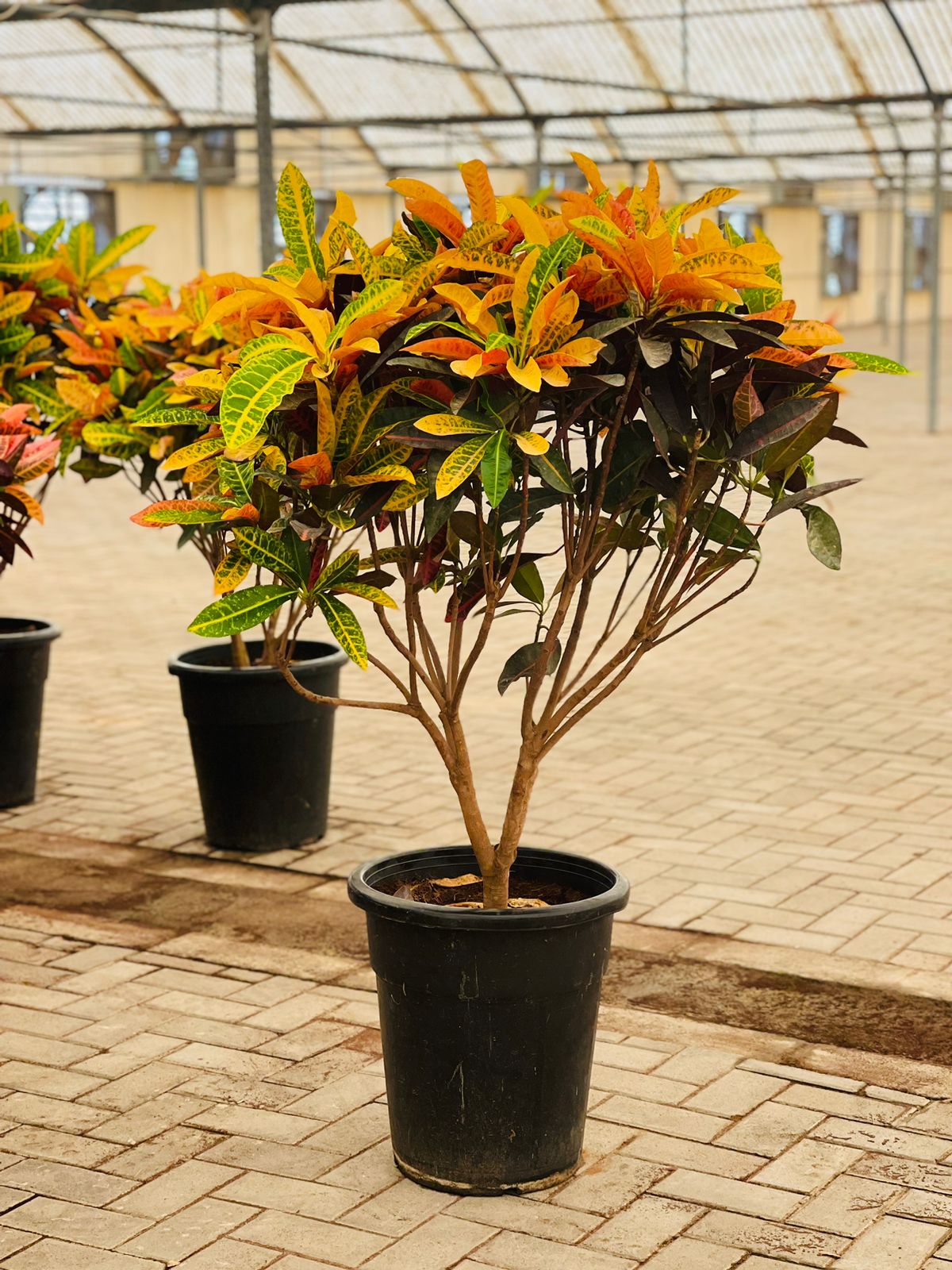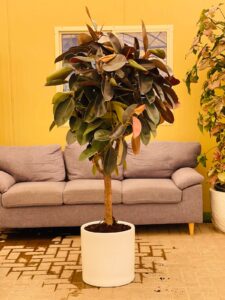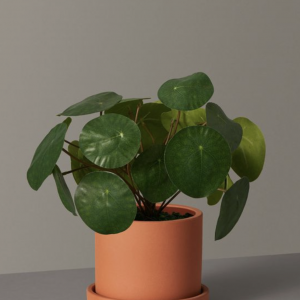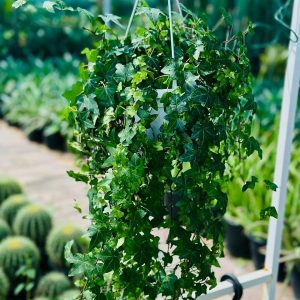Croton Plant
Indoor Croton plants have become a staple in modern homes, not only for their aesthetic appeal but also for the numerous benefits they offer. Among the myriad of options, the Croton plant stands out as a vibrant and striking choice. With its dazzling foliage and unique appearance, Croton, scientifically known as Codiaeum variegatum, has gained popularity as an indoor plant that can transform any living space into a tropical paradise. In this article, we will explore the fascinating world of Croton, its care requirements, and why it deserves a place in your indoor garden.

The Remarkable Croton:
Native to the tropical regions of Southeast Asia and the Pacific Islands, Croton is a member of the Euphorbiaceae family. Its most distinctive feature is its vivid and multicolored leaves, which come in a range of patterns and hues. Some common Croton leaf colors include shades of red, yellow, orange, green, and purple, often combined in eye-catching combinations. These vibrant leaves are elliptical or lance-shaped and can grow up to 12 inches in length, making Croton a truly captivating plant to behold.
Why Choose Croton as an Indoor Plant?
1. A Burst of Color: Croton plants are unrivaled when it comes to adding a pop of color to your indoor space. Whether you opt for the fiery reds and oranges or the more subdued greens and yellows, Croton’s foliage will brighten up any room and provide a refreshing contrast to the typical green of indoor plants.
2. Air Purification: Aside from their visual appeal, Crotons are also champions at purifying the air. They remove common indoor pollutants like formaldehyde and xylene, making them a natural and beautiful addition to your home or office.
3. Low Maintenance: Croton is a relatively low-maintenance plant, making it an excellent choice for both experienced and novice plant enthusiasts. They thrive in bright, indirect light and only require moderate watering. However, they do appreciate high humidity, so consider using a humidity tray or a humidifier if you live in a dry climate.
4. Versatile Decor: Croton plants can be grown in various settings, from pots to hanging baskets, and they can be pruned to maintain their shape. Their adaptability makes them a versatile choice for decorating your living space.
Caring for Your Croton
To ensure your Croton thrives indoors, follow these care tips:

1. Light: Provide your Plant with bright, indirect light. Avoid direct sunlight, as it can scorch the leaves. A window with filtered sunlight or a well-lit room is ideal.
2. Watering: Keep the soil evenly moist but not soggy. Water your Croton when the top inch of the soil feels dry. Be cautious not to overwater, as Crotons are susceptible to root rot.
3. Humidity: Maintain a humid environment for your Croton, especially in dry indoor climates. You can mist the leaves regularly or use a humidity tray.
4. Temperature: Crotons prefer warm temperatures between 60°F to 80°F (15°C to 27°C). Protect them from drafts and sudden temperature drops.
5. Fertilizing: Feed your Croton with a balanced liquid fertilizer during the growing season (spring and summer) every 4-6 weeks. Reduce fertilization in the fall and winter.
6. Pruning: Prune your Plant to encourage bushier growth and remove any leggy or damaged branches.
Conclusion
Croton is more than just an indoor plant; it’s a living work of art that can infuse your living space with color and vitality. Its vibrant foliage, air-purifying qualities, and relatively low maintenance requirements make it an ideal choice for both experienced and beginner plant enthusiasts. So, whether you’re looking to liven up your home or office, consider welcoming a Croton into your indoor garden. With proper care, your Plant will flourish, providing years of natural beauty and enjoyment.
Do You Like: Traveller palm (Ravenala madagascariensis) 4 Meter’s





Reviews
There are no reviews yet.